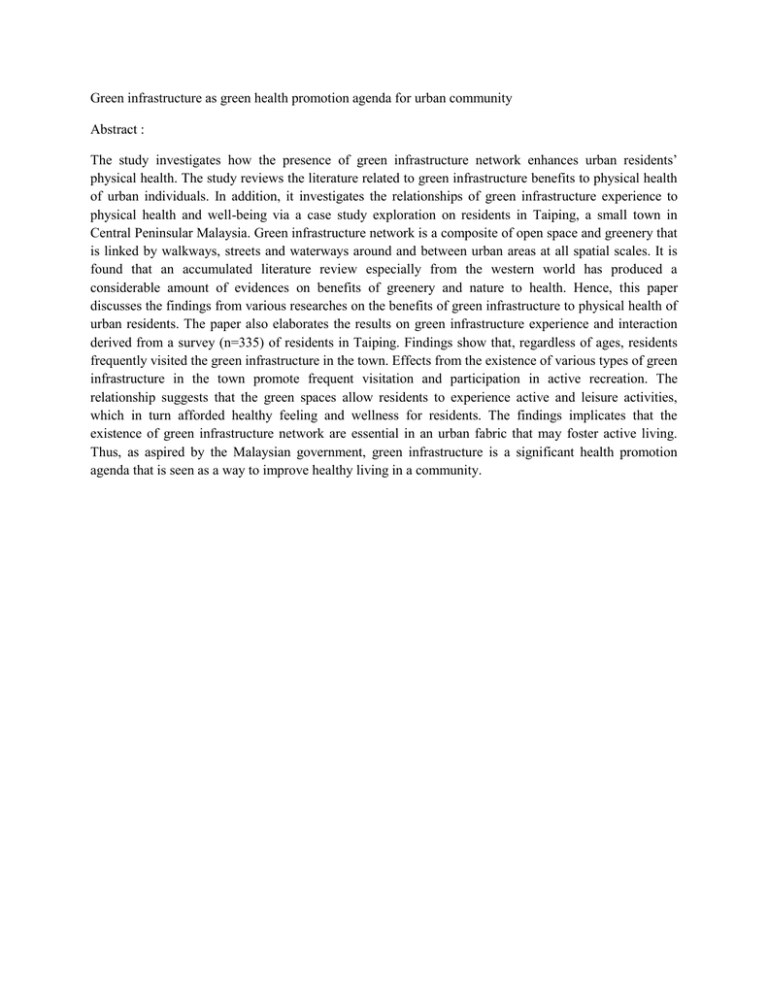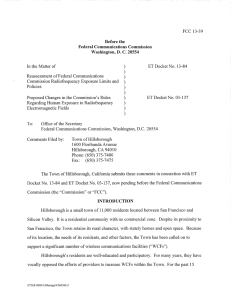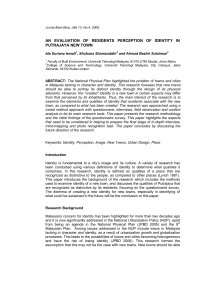Green infrastructure as green health promotion agenda for urban community
advertisement

Green infrastructure as green health promotion agenda for urban community Abstract : The study investigates how the presence of green infrastructure network enhances urban residents’ physical health. The study reviews the literature related to green infrastructure benefits to physical health of urban individuals. In addition, it investigates the relationships of green infrastructure experience to physical health and well-being via a case study exploration on residents in Taiping, a small town in Central Peninsular Malaysia. Green infrastructure network is a composite of open space and greenery that is linked by walkways, streets and waterways around and between urban areas at all spatial scales. It is found that an accumulated literature review especially from the western world has produced a considerable amount of evidences on benefits of greenery and nature to health. Hence, this paper discusses the findings from various researches on the benefits of green infrastructure to physical health of urban residents. The paper also elaborates the results on green infrastructure experience and interaction derived from a survey (n=335) of residents in Taiping. Findings show that, regardless of ages, residents frequently visited the green infrastructure in the town. Effects from the existence of various types of green infrastructure in the town promote frequent visitation and participation in active recreation. The relationship suggests that the green spaces allow residents to experience active and leisure activities, which in turn afforded healthy feeling and wellness for residents. The findings implicates that the existence of green infrastructure network are essential in an urban fabric that may foster active living. Thus, as aspired by the Malaysian government, green infrastructure is a significant health promotion agenda that is seen as a way to improve healthy living in a community.





